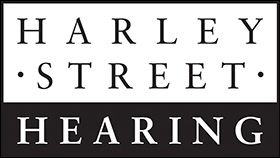-
Hearing Care
- Private Hearing Tests
- Ear Wax Removal
- Hearing Protection
- Tinnitus Treatment
- Auditory Processing Disorder Testing
- Balance & Diagnostics
- About Hearing Loss
- Hearing Loss Chart
- Hearing Aids
- Hearing Aid Manufacturers
- Oticon Hearing Aids
-
Phonak Hearing Aids
- Phonak Lyric
- Phonak Infinio
- Phonak Lumity
- Phonak Paradise
-
Resound Hearing Aids
- Resound Nexia
- Resound Omnia
-
Signia Hearing Aids
- Signia Pure Charge&Go IX
- Signia Silk Charge&Go IX
- Signia Active Pro IX
- Signia Styletto X
- Signia Insio IX
-
Starkey Hearing Aids
- Starkey Edge AI
- Starkey Genesis Ai
- Starkey Evolv AI
- Starkey Livio AI
- Starkey Signature Series
-
Unitron Hearing Aids
- Unitron Moxi Vivante
- Unitron Blu
- Unitron Discover Next
- Widex Hearing Aids
- Widex Allure
- Widex Moment
- Widex Moment Sheer
- Widex Evoke
- Bernafon Hearing Aids
- Types of Hearing Aids
- Invisible Hearing Aids
- Hearing Aid Glasses
- Bone Conduction Hearing Aids
- Hearing Aid Repairs & Adjustments
- Hearing Aid Manufacturers
- News
- Blog
- Hearing Tips & Tutorials
- Newsletters
- In The Media
- About Us
- Contact
- Professionals
- Patient Referrals
- Vacancies
- What Professionals Say
- Hearing Health Seminar

- Hearing Care
- Private Hearing Tests
- Hearing Tests for Children
- Online Hearing Test
- Ear Wax Removal
- Hearing Protection
- In-Ear Monitors
- Motorbike
- Musicians’ Ear Plugs
- Noise At Work
- Presenter Earpieces
- Shooting Ear Plugs
- Earplugs for Sleeping
- Swimming Plugs
- Custom Earphones
- Tinnitus Treatment
- Auditory Processing Disorder Testing
- Balance & Diagnostics
- About Hearing Loss
- Hearing Loss Chart
- Private Hearing Tests
- Hearing Aids
- Hearing Aid Manufacturers
- Oticon Hearing Aids
- Oticon Intent
- Oticon Real
- Oticon Own
- Oticon Own SI
- Oticon More
- Phonak Hearing Aids
- Phonak Lyric
- Phonak Infinio
- Phonak Lumity
- Phonak Slim Hearing Aids
- Phonak Paradise
-
Resound Hearing Aids
- Resound Nexia
- Resound Omnia
- Signia Hearing Aids
- Signia Pure Charge&Go IX
- Signia Silk Charge&Go IX
- Signia Active Pro IX
- Signia Styletto X
- Signia Insio IX
-
Starkey Hearing Aids
- Starkey Edge AI
- Starkey Genesis Ai
- Starkey Evolv AI
- Starkey Livio AI
- Starkey Signature Series
- Unitron Hearing Aids
- Unitron Moxi Vivante
- Unitron Blu
- Unitron Discover Next
- Widex Hearing Aids
- Widex Allure
- Widex Moment
- Widex Moment Sheer
- Widex Evoke
- Bernafon Hearing Aids
- Oticon Hearing Aids
- Types of Hearing Aids
- Invisible Hearing Aids
- Hearing Aid Glasses
- Bone Conduction Hearing Aids
- Hearing Aid Repairs & Adjustments
- Hearing Aid Manufacturers
- News
- Blog
- Hearing Tips & Tutorials
- Newsletters
- In The Media
- Read about us
- Watch us
- Listen to us
- About Us
- About Us
- Our Team
- Find Your Nearest Clinic
- Why Choose Us
- Contact
- Professionals
- Patient Referrals
- Vacancies
- What Professionals Say
- Hearing Health Seminar
Experiencing hearing problems after a cold? What to do
Home > Experiencing hearing problems after a cold? What to do
This time of year brings with it a ton of festive joy and cheer but also for many of us, especially in the UK, it’s that time of year when we’re most likely to be struck down by the dreaded winter cold.
If you’ve been unfortunate enough to have battled a cold in the past few weeks or months and you’ve been left with blocked ears, muffled hearing, or that annoying “full” feeling, don’t worry – you’re not alone, and there are things that can be done to help.
In this blog, we’ll take a look at why this happens, the symptoms to look out for, and what you can do to help yourself feel better just in time for Christmas.
Why do colds cause blocked ears?
When you catch a cold, your body’s immune response goes into overdrive, leading to inflammation and extra mucus. This often affects your Eustachian tubes – tiny passageways that connect your middle ear to the back of your throat.
These tubes are essential for maintaining balanced pressure between your middle ear and the outside world, as well as draining any fluid that accumulates in the ear. When you have a cold, inflammation and mucus can block these passageways in the Eustachian tubes, creating the perfect storm for blocked ears.
If these tubes become swollen or clogged with mucus it can prevent the normal flow of air and fluid, leading to pressure imbalances and other ear-related issues. Since your nose and throat are directly connected through the Eustachian tubes, congestion in one area almost always affects the other – i.e. if you have a blocked nose, you might get blocked ears too.
Along with that, if there is already ear wax in the canal, the blockage might feel worse. While a cold doesn’t cause ear wax, it may exacerbate the symptoms of a partial blockage by affecting pressure and fluid drainage. If you’re struggling with ear wax build-up, professional ear wax removal is the key to getting relief.

Symptoms of blocked ears
Whilst you might not think it, blocked ears after a cold can actually present themselves in many different ways and lead to a variety of noticeable symptoms. Some of the most common ones include:
- A feeling of pressure or fullness: That ‘blocked’ feeling is often caused by fluid buildup or a pressure imbalance in your middle ear
- Temporary hearing loss or muffled sounds: Excess mucus can prevent sound vibrations from travelling effectively to your inner ear, leading to a sense of dull or muted hearing or feeling as if you’re underwater
- Occasional popping, cracking, or clicking noises: These sounds are your Eustachian tubes trying to open and balance pressure
- Mild dizziness or balance issues: Your ears play a key role in maintaining balance, so congestion can sometimes make you feel slightly dizzy or unbalanced
- Mild discomfort or tenderness in the ear: Swelling or pressure changes in the ear can sometimes cause mild pain, especially when swallowing or yawning
Monitoring these symptoms is important for helping you understand what’s going on in your ears due to the lasting effects of your cold. If you experience intense pain, discharge from the ear, fever, or symptoms lasting more than two weeks, it’s time to seek professional help from your GP as these could indicate a more serious issue like an ear infection.
It’s also worth noting that if a build-up of ear wax is contributing to the blockage, some symptoms like muffled hearing and fullness may persist even if your cold improves. In these cases, professional removal is recommended to help restore comfort and clarity.
How to prevent blocked ears from a cold
Whilst a cold doesn’t always mean you’ll get blocked ears, they do often accompany each other but there are preventative measures that can be taken to minimise the chances of it.
Effectively manage cold symptoms
Keeping cold symptoms in check can play a big role in preventing ear blockages. Having a cold means that you’re infected with a virus, so you need to give your immune system the best chance to help fight it off.
Top tips for managing colds include:
- Getting plenty of rest and sleep
- Using over-the-counter remedies such as decongestants and saline nasal sprays to help reduce nasal swelling and minimise congestion that could impact your ears
- Focus on your hygiene practices including frequent hand washing to help prevent colds from spreading or worsening
Stay hydrated
Hydration isn’t just about fighting a cold – it’s a direct way to support your ear health. Drinking plenty of fluids helps thin mucus, making it easier for your Eustachian tubes to function properly.
You can also consider adding a humidifier to your home to introduce moist air which can soothe the mucus membranes in your nasal passages and Eustachian tubes, reducing the chance of blockages.
Limit your activities
Whilst recovering from a cold, certain activities such as flying or scuba diving can aggravate ear blockages. It’s wise to avoid travelling via plane if possible because the rapid changes in cabin pressure can make blocked ears even worse.
If flying is unavoidable, techniques like chewing gum, yawning, or using specialised earplugs designed for pressure changes can help equalise ear pressure during takeoff and landing.
Similarly, activities such as scuba diving subject your ears to significant pressure changes and are best avoided until you’re confident your ears are clear and functioning as normal.
What can you do to relieve blocked ears?
There are a few effective at-home remedies that can help you relieve blocked ears brought on by a cold. Some of those include:
Apply a warm compress
Create a warm compress by soaking a clean cloth in warm water (not too hot) and gently press it against the affected ear. The warmth helps to soothe the Eustachian tubes, which can promote drainage and relieve the feeling of fullness. Hold the compress on the ear for about 15-20 minutes, ensuring it’s not too hot to avoid any discomfort.
Nasal decongestants
These are available over the counter and work by reducing swelling in the nasal passages, which allows the Eustachian tubes to open and helps restore normal pressure in the ears. These are typically available over the counter, just be sure to follow the recommended dosage to avoid side effects and don’t use them for a prolonged period.
Steam inhalation
Inhaling steam is a natural remedy for easing blocked ears and nasal congestion. This can be done by boiling water in a pot and breathing in the steam, allowing it to open up your nasal passages and the Eustachian tubes.
To increase the benefits, you can also add a few drops of eucalyptus or menthol oil to the water to help clear the airways. Drape a towel over your head to trap the steam, creating a mini-steam tent for more concentrated relief.

When to see an audiologist about blocked ears
If you’re struggling with blocked ears after a cold and your symptoms persist or worsen despite trying the remedies mentioned above, we recommend seeking the help of an audiologist.
A professional audiologist will conduct an in-depth assessment of your ears and recommend the most appropriate treatments. This is important because persistent issues could indicate a number of things, such as:
- Otitis Media (middle ear infection): This is a common complication after a cold and might require antibiotics or other medical interventions
- Eustachian tube dysfunction: This occurs when the tubes remain blocked or impaired for a prolonged period, causing ongoing discomfort and pressure issues
- Hearing Loss: While most post-cold hearing issues are temporary, it’s important to rule out any lasting effects or underlying conditions
In some cases, professional treatments like microsuction, ear irrigation, or medication might be needed to clear your ears and restore normal function.
If you’re concerned about your hearing, get in touch with Harley Street Hearing. We are a highly qualified team of clinical audiologists with clinics across London offering a range of professional audiology services and we also work alongside specialist ENT consultants who provide diagnosis and tailored treatment plans. Call 020 7486 1053 or complete the contact page.
Enjoy this article? You might be interested in some of our others:
- What is hearing loss?
- Can an ear infection lead to hearing loss?
- Does loss of hearing affect balance?
Listen to us on Radio 2

Watch us on BBC

Watch us on Global News

Read about us in the Sunday Times

Listen to us on Radio 2

Author

Lerissa Pillay
Lerissa is a passionate and dual-qualified Senior Audiologist and Speech and Language Therapist, who graduated from the University of Witwatersrand in South Africa.
Read Bio
Contact Us

Hearing Test & Consultation
- Private Hearing Tests
- Types of Hearing Aids
- Hearing Tests for Children
- Online Hearing Test
- Hearing Loss
Wax Removal
- Ear Wax Removal
Hearing Protection
- Hearing Protection
- In-Ear Monitors
- Motorbike
- Musicians’ Ear Plugs
- Noise At Work
- Presenter Earpieces
- Shooting Ear Plugs
- Earplugs for Sleeping
- Swimming Plugs
- Custom Earphones
Tinnitus Therapy
- Tinnitus Therapy
- Hyperacusis
- Pulsatile Tinnitus
About
- About Us
- Our Team
- Why Choose Us
- Patient Complaints Procedure
Contact
- Vacancies
- Patient Referrals
The Harley Street Hearing Group
- Harley Street Hearing, London
- North London Hearing, London
- Musicians’ Hearing Services, London
- North West Hearing, Manchester
Harley Street Hearing has been awarded Phonak Premium Partner mark in recognition of the high level of service they provide to their clients. Harley Street Hearing, 2 Harley Street, London, W1G 9PA.
Copyright © 2025 Harley Street Hearing.
Website by Pixel Kicks Web Design Manchester